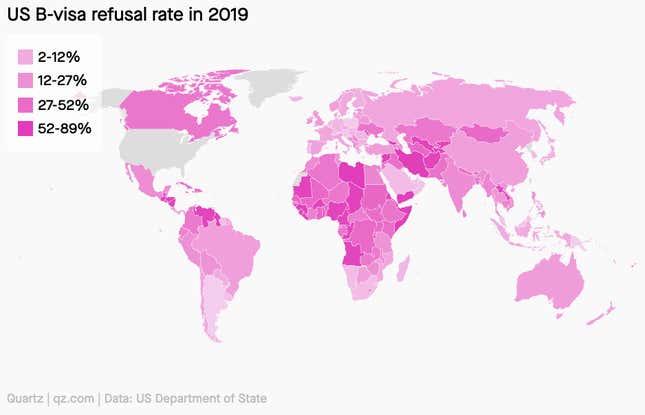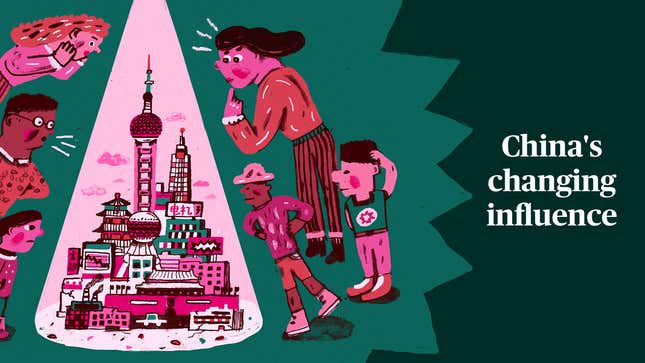Good morning, Quartz readers!
Here’s what you need to know
The UK economy shrank by more than 20% in April. GDP is currently the same as it was in 2002, according to Britain’s Office for National Statistics. The lockdown began on March 23—too late, some scientists say—and was particularly restrictive in the first few weeks.
Twitter took down thousands of pro-China accounts. The company said that it took action against “manipulative and coordinated activities” relating to disinformation about Covid-9 and Hong Kong, as well as hundreds more “engaging in state-backed political propaganda within Russia.”
Facebook gave its former chief product officer his old job back. Chris Cox, 37, left the company last year over differences with Mark Zuckerberg. “In the past month the world has grown more chaotic and unstable,” he now says, “which has only given me more resolve to help out.”
Sony revealed its latest Playstation. The gaming device, now in its fifth incarnation, will compete as usual with Microsoft’s next XBox. Sony revealed substantially reduced profit in its most recent earning report a few weeks ago, and PS5 is a crucial element of its 2020 strategy.
Dave Chappelle talked about George Floyd in his new special. Netflix just released the comedian’s latest work, which was recorded just days ago amid global protests against racism and police brutality. “This is the streets talking for themselves, they don’t need me right now,” he said in 8:46.
Mapping who gets US visas
To come to the US for business, tourism, or medical treatment, many travelers need to obtain a B visa. Quartz analyzed visa denial rates from the fiscal year 2019 and found that the permits were more likely to go to nationals of richer countries than those from poorer ones.

For Members:
Doing business with a changing China

Companies doing business in China are facing renewed pressure to bend to Beijing’s political will to retain market access. On Thursday, German chancellor Angela Merkel urged Chinese premier Li Keqiang to grant “equal treatment of foreign companies” during a bilateral meeting intended to improve a business environment that European companies (✦ Quartz member exclusive) say is marked by major external pressure from the Chinese government and media.
This tightening grip on foreign commercial activity is coming to a head in Hong Kong, where a new national security law is raising fundamental questions over the city’s role as the place where US dollars mix with Chinese enterprises under Western financial standards.
The British investment bank HSBC learned this lesson the hard way. Two weeks ago, Hong Kong’s former leader Leung Chun-ying singled out the bank for not publicly supporting the new national security law. The veiled threat achieved its intended result: a few days later, HSBC—which makes most of its profit in Hong Kong—threw its weight behind the law.
Last week’s anniversary of the Tiananmen Square protests also offered a glimpse of the new Hong Kong, with protesters facing prosecution over holding a vigil and Zoom suspending a local activist, although the video company promised to do better. Even Apple, the world’s most valuable publicly-traded company, continues to remove apps and features at the will of the Chinese government.
In addition to a changing business climate, the coronavirus pandemic and the ensuing economic fallout has prompted a recalibration of relationships with China, and in China’s engagement with the world. Read more in this week’s member-exclusive field guide China’s changing influence.
✦ Not a member? We’d love for you to give it a go, starting with a seven-day free trial. ✦
You asked about international travel
How will Covid 19 affect international travel over the long run? – Gabriela
Let’s start with the basics. On Thursday, the International Air Transport Association published an interactive map that displays the latest coronavirus travel restrictions—a good first stop for any travel planning.
Looking ahead, your options may depend on how much support airlines receive from lenders and/or governments. US air travel was down 96% in April and Delta just said it would have to renegotiate its debt to avoid a potential default. In Europe, major carriers are also cutting thousands of jobs that could impact flight pricing and availability down the road.
One last thing to consider is foreign exchange rates. After about two years of gaining strength, the value of the US dollar has fallen since the coronavirus reached American shores.
✉️ Do you have a burning question about how coronavirus is changing the world?
Surprising discoveries
The US Army has 10 bases named for Confederate leaders. It’s considering renaming them.
The Premier League won’t insist on masks when it resumes. But players will be encouraged not to hawk or blow their noses when celebrating goals.
Humans have been underestimating turtles. New drone footage from a Queensland green sea turtle rookery showed twice the number coming to lay eggs as previously estimated.
A Japanese schoolboy is suing for the right to play video games as much as he wants. A local law directs parents to limit gaming time to an hour on weekdays, and 90 minutes on weekends.
Wear a mask, avoid group sex, and “make it a little kinky.” Those are among the new recommendations in New York City’s updated Covid-19 safe-sex guidelines.
Our best wishes for a productive day. Please send any news, comments, Messi to Liverpool, and unlimited video games to hi@qz.com. Get the most out of Quartz by downloading our app on iOS or Android and becoming a member. Today’s Daily Brief was brought to you by Hasit Shah, Liz Webber, Annabelle Timsit, Youyou Zhou, and Max Lockie.



